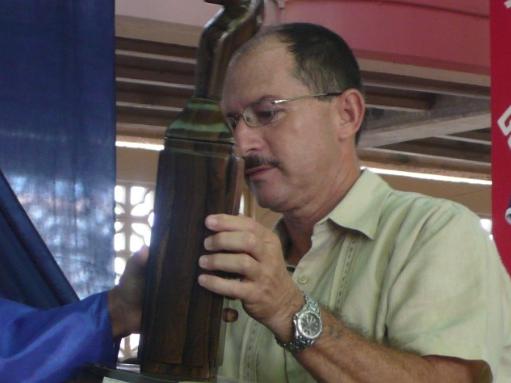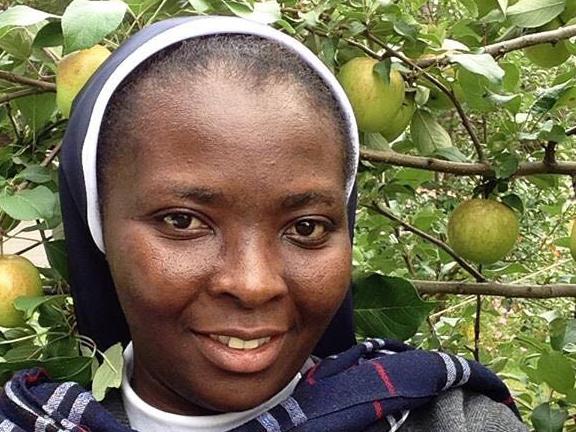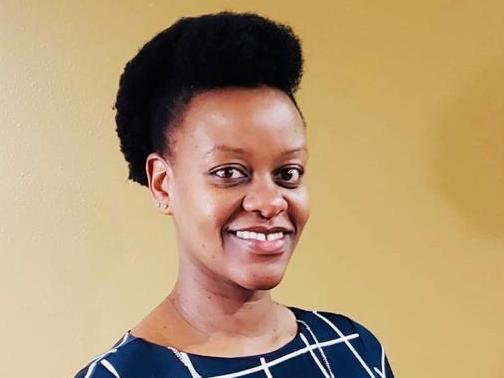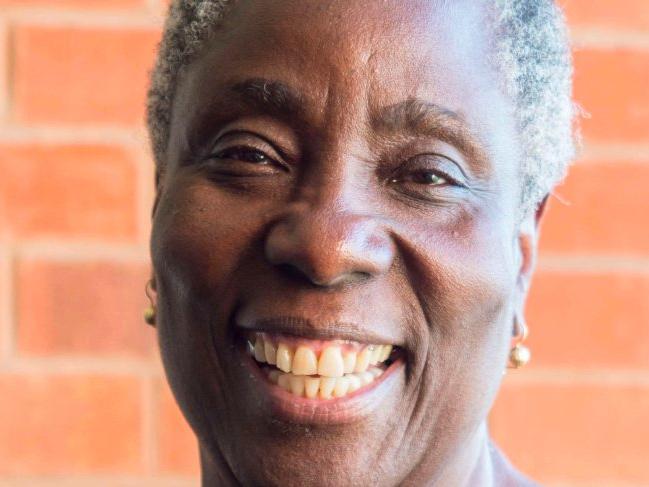
In some ways, Martha (Suarez) Brueggeman ’66 didn’t sound like she was destined for success when she came to Viterbo University in January 1962. She spoke no English. She had no money. She was only 16 years old, knew nobody in La Crosse, and she didn’t know if she would ever see her parents again.
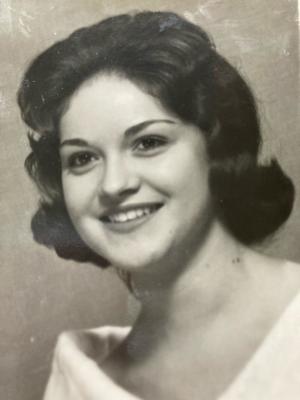
On the other hand, Brueggeman had some things going for her. She was precociously smart and talented, having already graduated from high school and earned a degree from a music conservatory at age 16. She was fearless, imbued with an immigrant’s sense of possibility, and she was blessed to have the Franciscan Sisters of Perpetual Adoration looking out for her.
That last part made all the difference.
“The love and the care and encouragement and support that I received from everyone at Viterbo and from the La Crosse community cannot ever be forgotten. It impacted my life in such a wonderful and beautiful way,” Brueggeman said. “Viterbo has me for good.”
Brueggeman has made the most of the chance she was given as an early refugee from Cuba, taking on local, state, and national leadership roles and earning a Greater Milwaukee Area Citizen of the Year Award in recognition of her leadership and volunteer work with Cuban refugees at Fort McCoy in the early 1980s. She and her late husband, Larry, raised two daughters who grew up to be medical professionals, one a pediatrician and one a dentist.
Now retired, Brueggeman talked about her remarkable saga in a phone interview from her home in Waukesha.
She was the eldest of three children born to two teachers. Her father taught mathematics to top tier high school students and her mother was a piano and music teacher.
“We were a very happy family, up until Castro took over,” Brueggeman said.
When revolutionary forces led by Fidel Castro overthrew the Cuban government in January 1959, Brueggeman’s family at first saw it as a good thing, a chance that democracy would take hold in Cuba. Within six months, though, it was clear Castro had something else in mind.
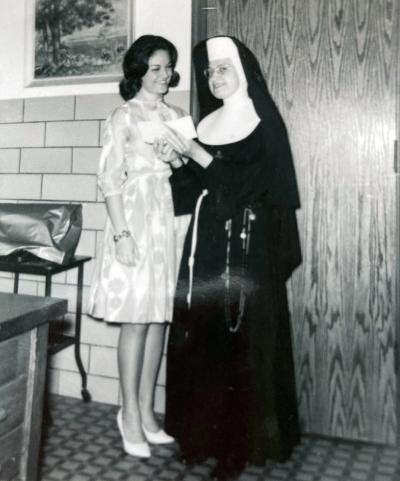
Brueggeman’s parents made the painful decision to apply to have their children be allowed to emigrate to the United States, not knowing whether they would be allowed to join their children at some point. Her younger siblings went first, and on Dec. 30, 1961, Brueggeman joined them at a children’s refugee camp in Florida.
Thanks to a Catholic welfare organization, within two weeks 15 colleges had agreed to accept Brueggeman as a student, covering her tuition and room and board. The choice was down to two colleges, one in Buffalo, N.Y., and one in La Crosse.
“I had no idea where these places were, so I told them to choose for me,” Brueggeman said. “They decided to send me to Viterbo because there were fewer Latin Americans in the area so I would learn English faster.”
By mid-January, Brueggeman had landed in La Crosse, the day after a snowstorm, and she recalls the blast of cold air when the airplane door opened. Although used to a tropical climate, she was delighted.
“That breath of cold fresh air just went through my whole body, and I just felt free and happy,” Brueggeman said.
A proud American citizen since May 1, 1969, Brueggeman said it only took a week at Viterbo to erase all traces of the anti-American propaganda that had been thrown at her in Cuba.
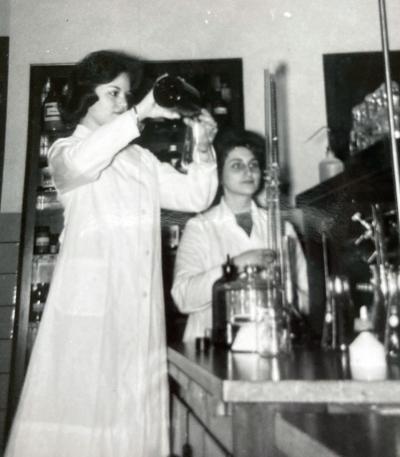
Given her music background, Brueggeman’s first choice was to study music, but that wasn’t an option as the music program already was full. She settled instead on chemistry, a choice she never regretted.
Her first week at Viterbo, Brueggeman attended a wide variety of classes as a guest to get her used to the sound of English. In the evenings, she would spend two hours being tutored in English by Celestine Cepress, FSPA.
The second week, she was assigned to specific classes but was exempt from having to answer any questions from the professor. By the third week, she was expected to be a full participant in classes.
“I was afraid, of course,” Brueggeman said. “I was scared, but I kept on telling myself, ‘Everything will be all right. I’m going to make it.’ I was determined.”
One of Brueggeman’s biggest blessings at Viterbo was being assigned to room with Leona Berger, who helped her improve on her English and became a lifelong friend. “She would try to help me as much as possible,” Brueggeman said. “She was 100 percent there for me, but everyone, sisters, teachers, all students, not just my class but everyone I met, they were just so warm and welcoming and helpful. There are no words to describe the wonderful help and care they took of me. I was blessed to have been sent to Viterbo.”
After her first semester, Brueggeman got the good news that her parents had made it to the U.S. That meant she could be reunited with them, but it also meant her funding for school would be cut off, since her parents were in the country.
“We had no money. We maybe had $100 or $200. I thought I would never be able to continue my studies, but one of the Sisters from Viterbo wrote to her sister, a lay person, in St. Paul, asking her to help me,” Brueggeman said.
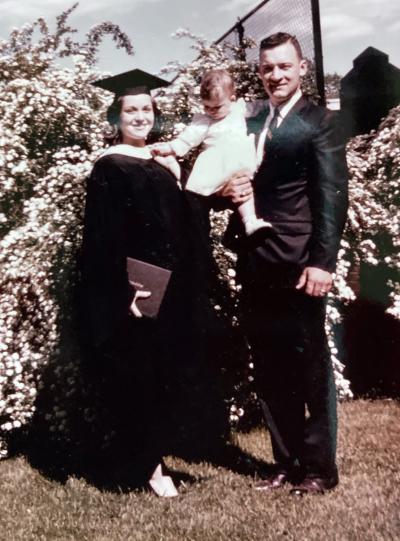
Her benefactor, Jean Meyer, stepped up, paying Brueggeman’s way until Brueggeman married the love of her life, Larry, in August 1964. He had graduated from the University of Wisconsin-La Crosse and found work as an accountant.
In July 1965, they welcomed their first daughter, Lysette. Brueggeman had vowed that marriage would not stop her from completing her Viterbo degree, nor would becoming a mother. She had overcome so many obstacles, but with the finish line in sight she was challenged with one more hurdle.
Brueggeman learned her husband’s employer wanted him to transfer to Milwaukee. With one semester to go, Brueggeman went to the university president and asked if she could help find a way for her to complete her Viterbo degree. A complicated plan for Brueggeman’s final semester was hatched.
In Milwaukee, Brueggeman took two courses at Marquette University and some correspondence courses from Loyola University. One weekend a month, Brueggeman returned to Viterbo to complete a history class and a chemistry class, cramming the required hours for semester-long classes into a handful of weekends.
For both Viterbo classes, she was the only student. Her chemistry instruction came from the head of the department, who also was Brueggeman’s advisor. “Sister Lavonne was like my mother all the time I was at Viterbo,” Brueggeman said .
Brueggeman also formed strong bonds with two fellow Cuban students at Viterbo: Mariangel (Gil) Flynt ’65 and Monsie (Carbonell) LaLonde ’66. At first, Brueggeman wasn’t allowed to spend much time with them to ensure she learned English, but in the course of their time at Viterbo they became fast friends.
In May 1966, Brueggeman returned to Viterbo for her commencement ceremony. Six days later, her second daughter, Lorelle, was born.
Soon after graduation, Larry decided to return to school to earn a law degree. Brueggeman had to do something to bring in some money, but with two young daughters at home, any work that would put her chemistry degree to good use was out of the question.
So Brueggeman decided to follow in her mother’s footsteps and give piano lessons. She put an ad in the paper, offering lessons in her home. By the end of the first year she had 15 students, and in another year she had 50, all thanks to word-of-mouth advertising. She could have had a lot more students, but she had to keep it to 50 to have time to devote to her family, too.
Although she had formal training from Cuba, Brueggeman took the step of earning a state music teacher certification, and later national certification. Over the years, she got involved in the music teachers association, taking on the presidency of the Milwaukee chapter and then the Wisconsin chapter. She served as the vice president of the Music Teachers National Association, but decided to forgo the top spot so she could spend more time with family after her first grandchild was born.
As much as she loved teaching piano, Brueggeman had to curtail her teaching after her husband was diagnosed with dementia in 2010. She retired completely in 2016 after he became bedridden, and she cared for him until his death in 2019.
Brueggeman never did earn a living from her chemistry and biology training at Viterbo, but she’s sure the knowledge she gained from that and shared with her daughters was instrumental in them choosing to become medical professionals. Lorelle became a pediatrician, while Lysette became a dentist, married a dentist, and now has a son in dental school.
Of course, Brueggeman learned so much more than chemistry in her time at Viterbo. “I learned so many life lessons at Viterbo,” she said. “You can’t express in words what that meant to this Cuban girl. I was blessed to have been sent to Viterbo.”
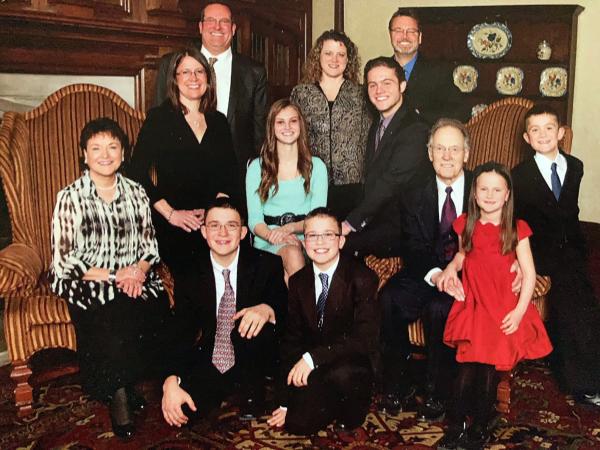
Help keep Viterbo's global connections strong with a gift designated for international students.
